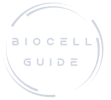Study Shows BioCell Collagen Ingestion Reduced Signs of UVB-Induced Photoaging, Which Accounts for a Significant Amount of Visible Skin Damage
Study Shows BioCell Collagen Ingestion Reduced Signs of UVB-Induced Photoaging, Which Accounts for a Significant Amount of Visible Skin Damage
LOS ANGELES, CA., April 28, 2020 /PRNewswire/ — IRVINE, Calif., April 28, 2020 /PRNewswire/
A new published laboratory study builds on an established body of research on the efficacy of BioCell Collagen, finding that daily supplementation with the branded matrix reduced common indications of UVB-induced photoaging compared to a control group.
Oral supplementation with BioCell Collagen combined with controlled UVB exposure resulted in reduced photoaging signs, including significant reductions in wrinkles and transepidermal water loss, as well as significant improvements in skin elasticity and hyaluronic acid (HA) content, according to the study.
The entire results of the peer-reviewed study were published in the Journal of Functional Foods in May and can be found on ScienceDirect.
Photoaging, or skin damage produced by ultraviolet (UV) light exposure, is responsible for 90% of apparent changes in the skin1. UVB-induced photoaging, such as that used in the study, destroys the skin’s outer layers2 and causes wrinkles, fine lines, and a loss of suppleness and moisture, all of which contribute to premature aging.
“Almost everyone is exposed to UVB-induced photoaging to some degree, and there is very little study on how to reduce it through nutritional supplements,” said Brooke Alpert, RD, a top skin nutrition expert.
“This laboratory study, as well as previous human trials, show that BioCell Collagen’s unique matrix of hydrolyzed collagen type II peptides, chondroitin sulfate, and hyaluronic acid can be utilized to address common, visible indications of photoaging, and is a promising step forward.
These findings are extremely encouraging for anyone seeking healthier-looking skin, especially those looking for a non-invasive, effective, and safe solution.”
BioCell Collagen is a clinically tested, branded dietary ingredient that supports youthful-looking skin, active joints, and healthy connective tissues. It has been studied for nearly two decades.
The study, which was carried out by an independent research team, looked at the use of BioCell Collagen in hairless mice with skin absorption levels similar to human skin.
The study included 40 hairless mice who were randomly assigned to one of four groups: no UVB exposure and no supplement, UVB exposure with no supplement, and two active groups receiving UVB and varying supplement amounts.
The intervention groups received BioCell Collagen at 200 mg/kg (human equal to 1 g daily) or 600 mg/kg once daily for 14 weeks (human equivalence to 3g daily). Each animal was exposed to UVB light (290–320 nm) three times each week for UV exposure. To test the efficacy of BioCell Collagen on wrinkles, transepidermal water loss, skin elasticity, and collagen levels, the skin was measured and graded.
When compared to non-supplemented controls, BioCell Collagen had a substantial influence on skin-related changes usually linked with UVB-induced photoaging, with supplementation reported to lessen the deleterious effects of UVB on:
- The number, area, length, and depth of wrinkles, as well as the number, area, length, and depth of wrinkles
- Elasticity of the skin
- Hyaluronic acid content in the skin
- Transepidermal water loss and matrix metalloproteinases enzyme concentration are two factors typically linked to UVB-induced skin aging
These findings support numerous published research on BioCell Collagen’s efficacy, demonstrating that the dietary supplement is a safe and effective option for maintaining healthy skin and joints as people age.
Over the course of 14 weeks, once-daily treatment was well tolerated, with no reported adverse effects.
“These findings are consistent with previous research on BioCell Collagen’s performance as a safe and effective component of a skin health routine,” said Suhail Ishaq, president of BioCell Technology, the study’s sponsor.
“Photoaging affects almost everyone and accounts for the majority of apparent skin damage. While BioCell Collagen cannot replace sunscreen, this study adds to the growing body of data that BioCell Collagen can be a safe, non-invasive, and easy-to-use supplement to a skin care routine. The foundation of a strong year-round skin care program might be regular oral supplementation of BioCell Collagen along with a good topical sunscreen to prevent damage.”
BioCell, according to Alpert, is a cost-effective answer for Americans who are dealing with new and seasonal changes in their grooming and skincare routines.
“As we move deeper into spring and closer to summer, the UVB-rays that induce photoaging will once again pose a threat to our skin’s health, necessitating the use of a good topical sunscreen,” Alpert stated.
“Even when we stay inside and practice social distancing, we are exposed to additional skin irritants, such as dryness caused by HVAC systems and difficulties caused by increased screen usage.
BioCell Collagen supplementation, in combination with a topical sunscreen, is a realistic option for people looking for more subtle ways to enhance their skin health.”
“When looking for skin-health treatments, look for items that are backed by science,” Alpert advised.
“BioCell Collagen’s unique bioavailable matrix promotes good absorption in the body, ensuring that you reap the benefits demonstrated in study.”
BioCell Collagen is a stand-alone product or a major ingredient in several formulations from prominent dietary supplement companies across the world.
BioCell Collagen Information
- BioCell Collagen is a complex matrix of collagen type II peptides, chondroitin sulfate, and hyaluronic acid that has been scientifically tested as a dietary supplement ingredient.
- Clinical studies have demonstrated that BioCell Collagen promotes active joints, youthful-looking skin, and healthy connective tissues.
- Several research, including seven human clinical trials, back up BioCell Collagen’s safety, effectiveness, and bioavailability.
- BioCell Collagen is GRAS (Generally Recognized As Safe), non-GMO, gluten-free, soy-free, shellfish-free, fish-free, egg-free, milk-free, peanut-free, and sugar-free.
- Only the United States and Germany produce BioCell Collagen.
1https://www.epa.gov/sunsafety/health-effects-uv-radiation
2https://www.healthline.com/health/skin/uva-vs-uvb#about-uvb-rays




